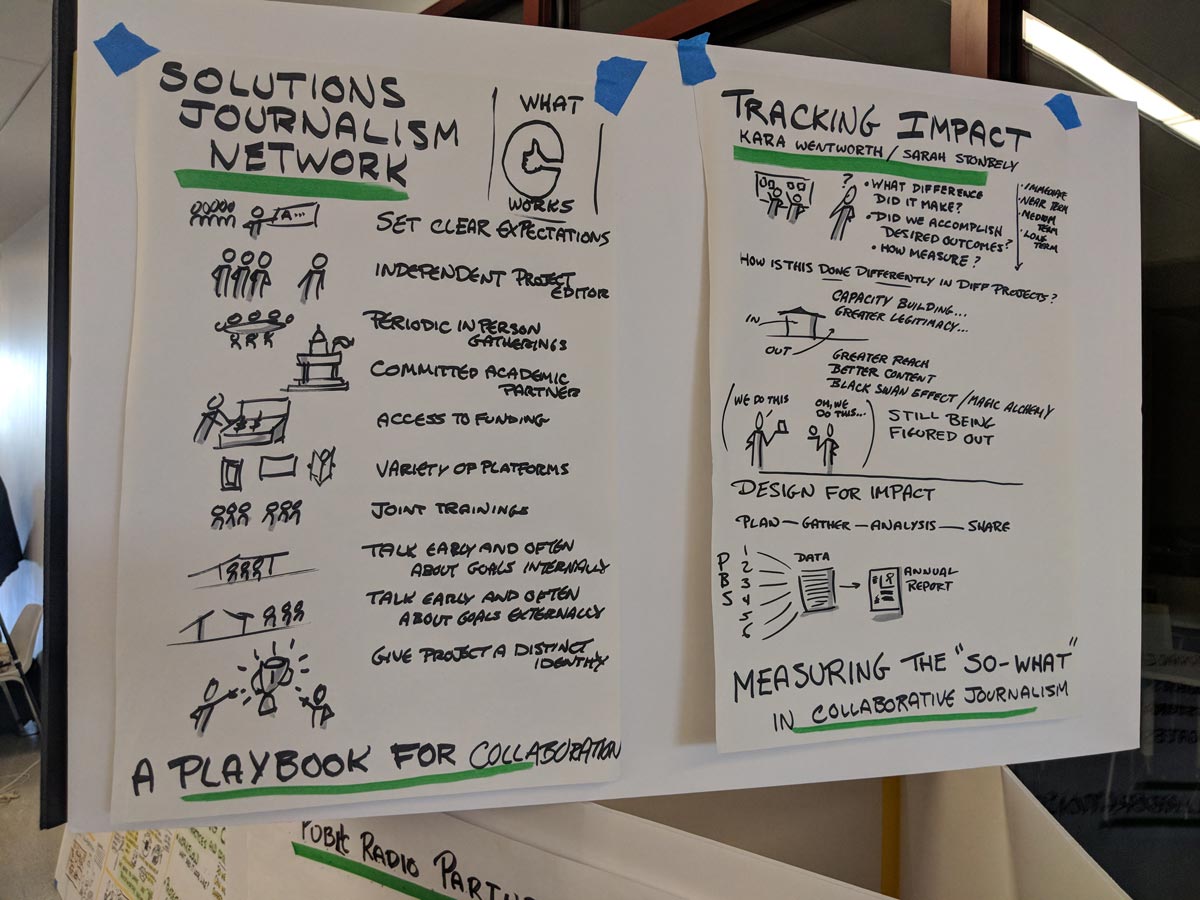Showcase the Benefits of Solutions Journalism

You can frame solutions reporting as an opportunity with multiple benefits for the newsroom: as a way to rebuild trust, reach new audiences, speak about issues more constructively, and foster less-polarized conversations about deep social problems. The more reporters dig in to solutions journalism, the more they will find new questions to explore and unexpected opportunities for collaboration across beats, disciplines, and geographies.
Through the years, the Solutions Journalism Network has collected evidence of solutions journalism’s powerful benefits on audience engagement. There are signs that solutions stories catalyze more constructive public discussion, particularly among traditionally underserved or marginalized communities. It has empowering effects, strengthening the agency of individuals and communities, and heightening consumers’ perceived knowledge and sense of self-efficacy. It also seems that audiences engage differently with solutions journalism than with other kinds of news coverage, spending more time on page and, in some cases, sharing stories more widely on social media.
The solutions approach may also help news organizations build stronger relationships with their constituents. People who think they know more about an issue, who share a story with a friend, and who feel more empowered to act are likely to attach greater value to the news and to feel a stronger attachment to the respective news source. They also tend to trust and value the media more.
Real more about audience and community engagement strategies in our Engagement Toolkit.
